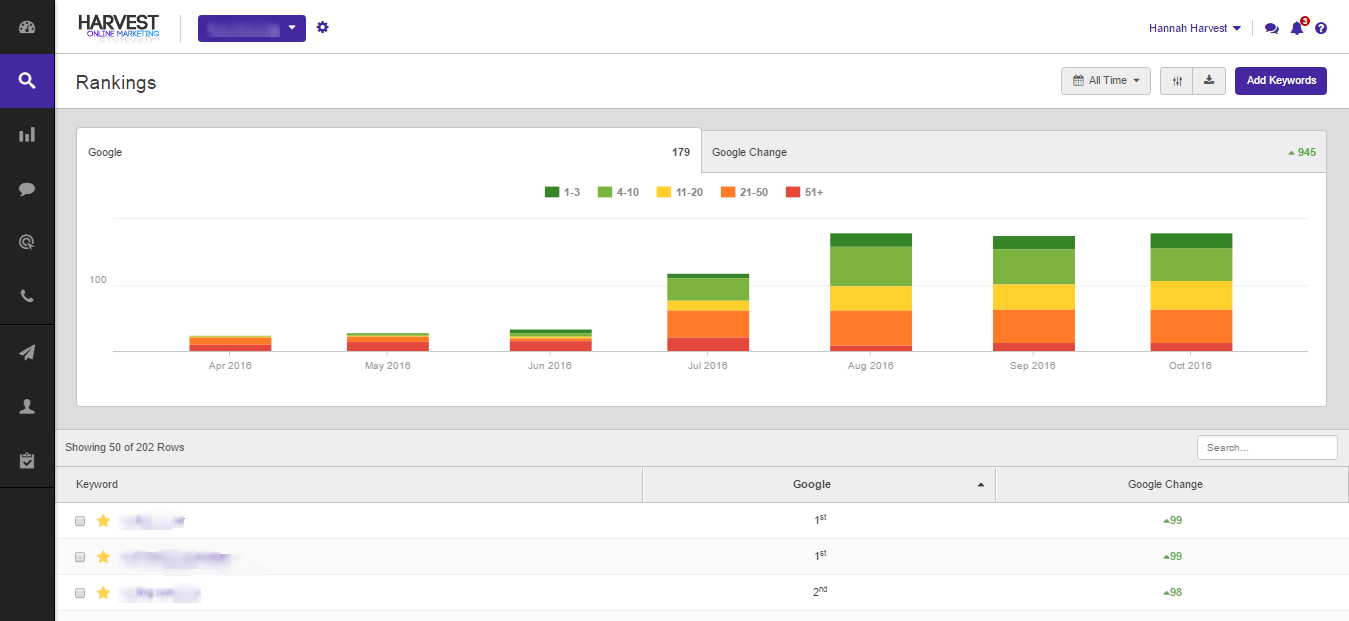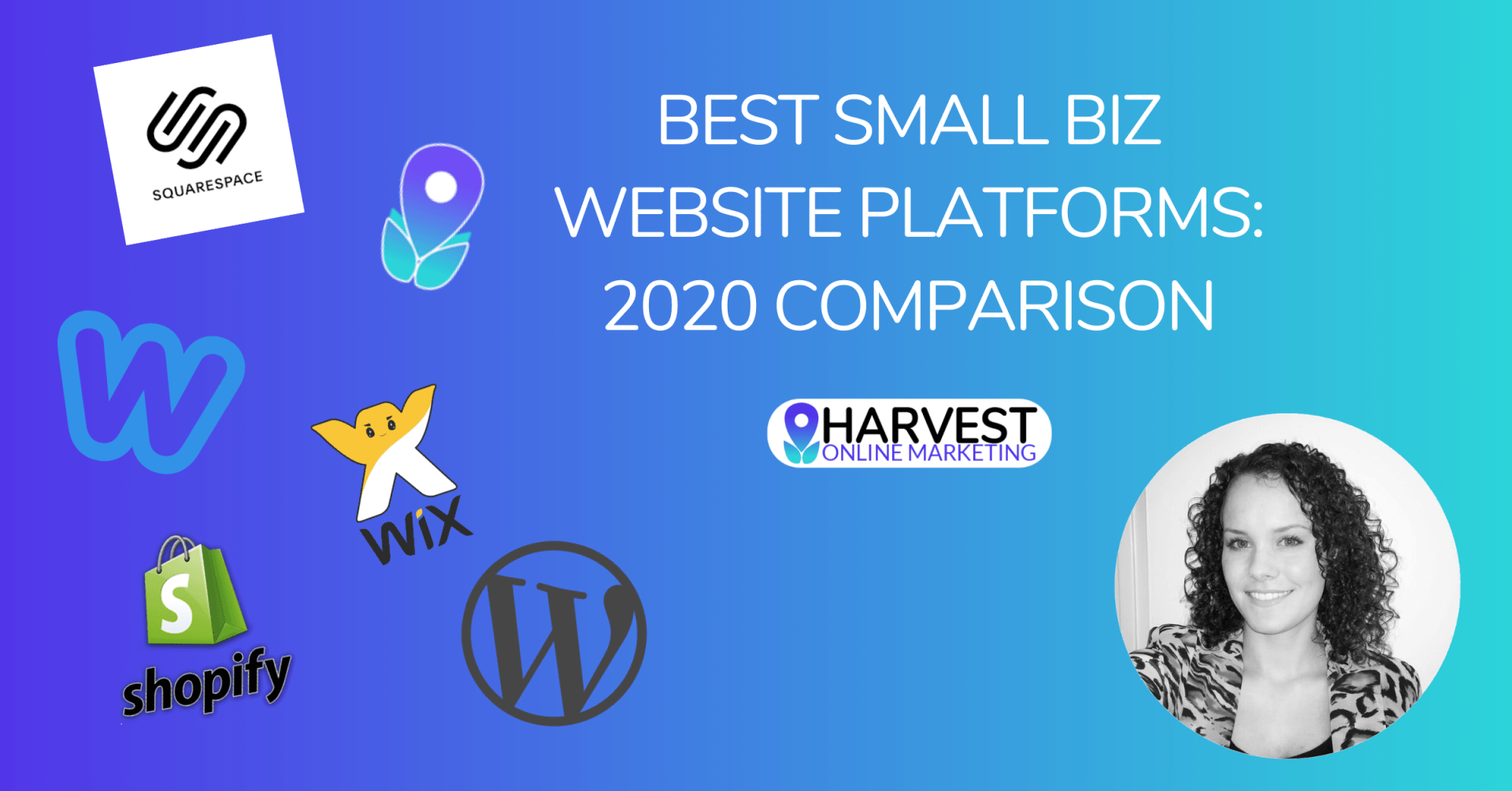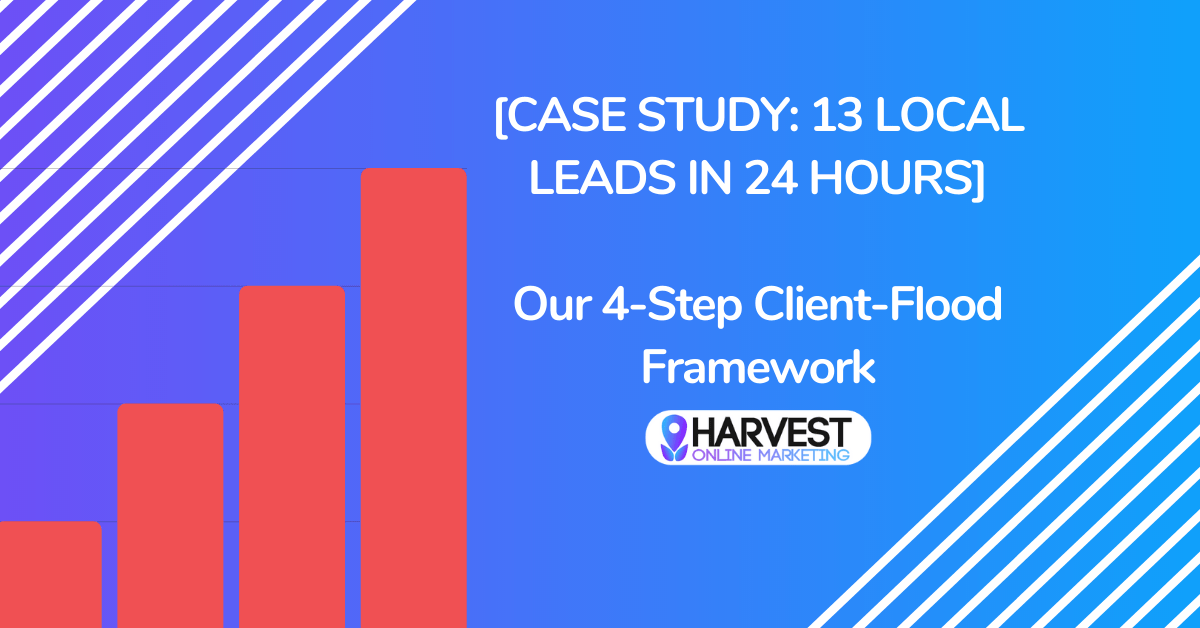
The Problem with Ego-Metrics

-
Hey, I'm Hannah - owner & author.
ButtonI've been helping small businesses use data and design to grow for over a decade. I hope you're next!
Through a few marketing conversations recently, I’ve realized more than ever that the prioritization of ego-metrics is a serious problem.
In short, businesses need to focus on metrics that actually matter and make a difference, rather than ego-boosting metrics.
A few of these numbers that people mistakenly rely on and prioritize for improvement are:
- The number of Facebook likes on a page
- The DA (Domain Authority) of a website in Moz
- Estimated competition numbers, for example via Spyfu
Why Facebook Likes Don’t Matter
You don’t own the Facebook platform, so you don’t own any of your customer data on Facebook. Remember when pages could get likes, and actually reach a large percentage of their fans for free? Then, remember when Facebook took this away, and everybody got upset? This is what happens when you build your house on someone else’s land and expect to own it. It’s great to increase your Facebook fanbase, yes, but never forget that you are a renter there, not an owner.
A general rule of thumb is to never build your house on someone else’s land. While Facebook numbers can be a good benchmark , they should NEVER be your primary marketing goal. The backend numbers of how many people are actually seeing and engaging with your content, and the number of people that take action on some other form of media you own (such as a mailing list signup through your website, or an actual sale), are far far more important. Facebook likes in general should be a byproduct of other marketing that you’re doing. If this is a primary KPI (key performance indicator) for you, you’re doing something wrong.
Don’t sit there and worry about how many likes you have. Worry about what your audience is doing . The benefits of having likes on your Facebook page are that you can send them to other pieces of media and advertise to them directly, but the fact that you have the likes means nothing. I can buy 10,000 FB likes for seriously cheap, and it doesn’t do anything for me, other than perhaps increase my value in the eyes of people who don’t know better.
Why Domain Authority Doesn’t Matter
It pains me to see businesses and marketers encouraging an emphasis on Domain Authority. “How much will this improve my DA?” they ask.
First, to clarify, the domain authority of your website in Google’s eyes is EXTREMELY IMPORTANT. However, there is NO public metric for this.
The domain authority per Moz’s proprietary scoring system is, outside of benchmarking, completely useless.
Let me show you an example. This recent post discusses how a marketing company increased their client’s DA score in Moz by 7 points.
My response…. WHO CARES? An increase in DA does nothing for the client, unless the same metrics that influenced the DA have also influenced traffic and sales . Is this usually what happens? Perhaps . However, this piece of content appeared to have almost no significant impact on the website’s traffic , as seen from SEMrush, outside of a slight temporary boost. (Now, we also know that SEMrush is not 100% accurate, but is again great for using as a benchmark tool. But we can guess that if the website had seen massive rank and traffic improvements from this case study, we would have seen some of those results in the post as well, don’tchya think?)
Why Estimated Competition Numbers
Don’t
Only Sorta Matter
I have one client that has been with me for 4 years. Every few months, they contact me in a panic because a certain competitor appears to be outdoing them in traffic according to an estimation tool. No matter how much actual data , aka factual traffic reports I show them which displays a consistent increase in traffic over 4 years, these numbers never fail to freak my client out, even though the tool they use doesn’t have access to either site’s actual data. It’s not like these are minor numbers, either – their monthly traffic from organic search has more than tripled since we began working together.
Only use estimation tools as a benchmark , never as a statement of facts. The numbers that matter above all else are the actual metrics of your users. Make sure you know where the data is coming from and how to interpret it, no matter what type of data you’re looking at.
That’s pretty much all there is to it. Try to prioritize your metrics appropriately, that way you’ll be focusing on the marketing tactics that actually make a difference for you , instead of just making you feel good. SEO can increase the actual traffic to your website if people are searching for your services – so can Facebook marketing, direct mail, etc etc. Just make sure you’re focusing on the traffic sources and the metrics that will truly make a difference for your business!

We are a digital marketing agency that helps small businesses get in front of their perfect local customers online, and look great while doing it.









